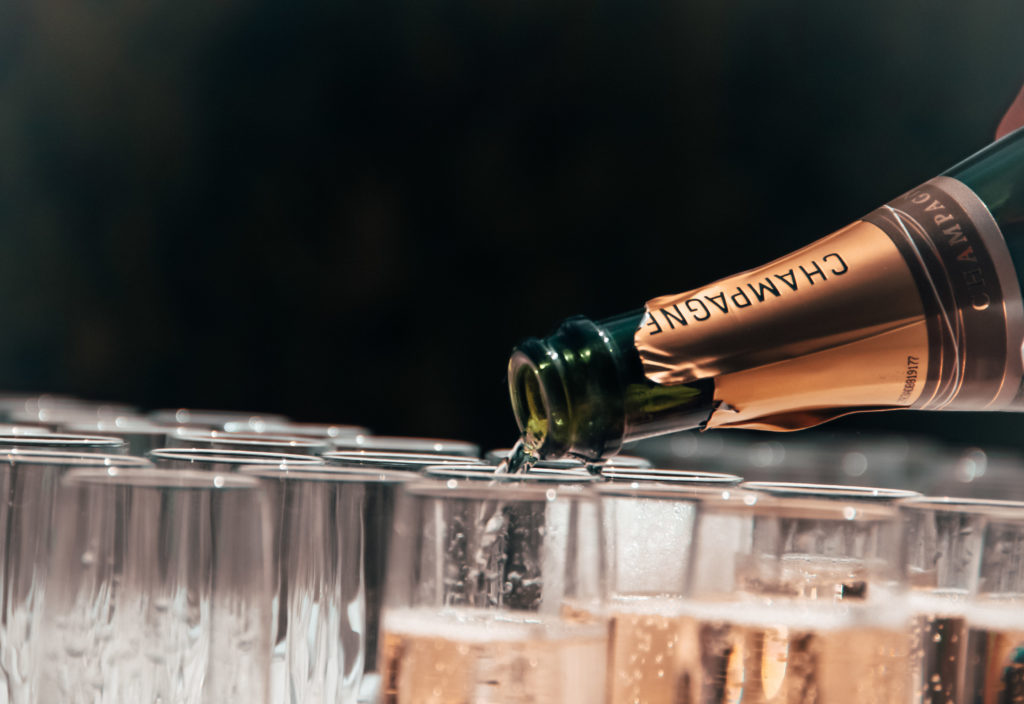
Aunt Agnes had always liked the good things in life. She had a rack with wines from all over the world, but her pride and joy were her two dozen bottles of champagne. She would choose one of her champagne bottles for every special occasion celebrated. One of his favorites was a bottle of Moet & Chandon. It was light, bubbly, and subtle sweetness, perfect for an elegant celebration. She also had a bottle of Veuve Clicquot, fuller flavored and bodied, and some rarer vintage champagnes, such as Taittinger and Dom Perignon.
She wanted to ensure she was responsible because her friends would tell her stories of people getting sick from drinking too much. So, she decided to learn more about the possible health effects of champagne. As with most alcoholic beverages, champagne can positively and negatively impact your health, depending on how much you drink.
Several studies on the health effects of champagne have emphasized the role of phenolic acids (including flavonoids). These organic compounds, present in wines, champagne, and foods such as cocoa and olive oil, are thought to promote cardiovascular health.
The mechanisms of these compounds are not yet fully understood, but they would have a role in the maintenance of vascular tissue (arteries, vessels, capillaries), as well as anti-inflammatory and antioxidant properties.
According to a study by the University of Reading, champagne can be beneficial for memory and even against Alzheimer’s disease.
A bottle of champagne contains many minerals: potassium, calcium, magnesium, iron, zinc, copper, manganese, and selenium, an antioxidant crucial for the proper functioning of the immune system and thyroid.
Please remember, however, that this is a delightful and alcoholic beverage. The bubbly alcohols also facilitate the absorption of alcohol into the stomach. Therefore, it causes a rapid increase in the blood alcohol level and faster intoxication, so we should drink it in moderation.
Excessive alcohol consumption is responsible for about one in twenty deaths, according to the World Health Organization.
1 Great for happiness. Champagne is rich in potassium, magnesium, and zinc. Thanks to all these nutrients, it is excellent for a burst of joy. Therefore, it is unsurprising that champagne goes so well with life’s most festive and memorable moments.
2 Good for heart health. It benefits blood vessels and reduces bad cholesterol thanks to its antioxidants, which reduce the risk of stroke and heart attack.
3 Against diabetes. A Canadian study revealed that all wines, including champagne wine, reduce the risk of developing diabetes. This work involved moderate consumption.
4 Memory ally. Scientific work has shown that champagne is good for the brain. A study conducted by Columbia University goes even further by stating that the proteins in champagne are beneficial for short-term memory.
5 It is better than most alcohol. Champagne is one of the lowest-calorie alcohols on the market. In a British Journal of Nutrition study, researchers noted that champagne helped reduce cellulite.
6 Ideal for skin health. Its antioxidants prevent the harmful effects of free radicals on cells, which limits skin damage. There are also polyphenols and tartaric acid that reduce inflammation and redness of the skin.
7 Champagne is often mentioned as an aphrodisiac, but is it true? Most people agree it can be considered an aphrodisiac, at least to some extent. After all, alcohol is known to lower inhibitions and reduce anxiety, making one feel more relaxed and confident, two essential components of a romantic encounter. However, the truth is that alcohol can be a double-edged sword in romance. While it can help relax relaxation and create a more relaxed atmosphere, it can also impair judgment and lead to unwise decisions.
8 What does champagne taste like? It is a unique taste that many find difficult to describe, but everyone will agree it is pleasant. Champagne has a light, bubbly taste with a hint of sweetness. It is crisp, refreshing, and a little spicy. It is often said to have a touch of acid and a slightly fruity finish. Champagne is also known for its bubbles that tickle the tongue and add a fun texture to the experience. With each sip, you get a delicious flavor that lingers on the palate.
